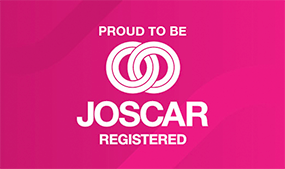
28/04/2022
3 benefits of rapid and effective triaging in a multiple casualty incident
When a Multiple Casualty Incident (MCI) occurs, such as a major road traffic accident, fire, or terrorist attack, prioritising patients is critical for those that are most in need to receive urgent treatment first. In an MCI, injuries are likely to be varied, from minor abrasions and fractures to cardiac events and severe blood loss. It is likely that some casualties will be at serious risk of sudden death, while others will be ‘walking wounded’. Being able to distinguish between those who need care most urgently and those who can be safely treated later is vital to preserving life and reducing suffering.
In the immediate aftermath of an MCI, resources particularly medically-trained staff, equipment and transportation, may be limited. Identifying and balancing the needs of casualties is key to optimising casualty outcome and preventing the response from becoming overwhelmed.
The benefits of rapid Multiple Casualty Incident (MCI) triage
A triage system is a critical component of MCI management as it enables first responders and emergency personnel to establish a hierarchy of patients according to their medical needs and the availability of resources.
The benefits of effective MCI triage include:
- Rapid evaluation of casualties’ medical needs: first responders must be able to quickly assess each patient and determine the severity of their injuries, in order to allocate medical resources appropriately. This ensures that those casualties that require rapid life-saving intervention receive it, while ensuring those with mild or minor trauma are made comfortable while awaiting healthcare.
- Fast medical response proportionate to patient needs: where survival is in the balance, reducing the time from the point of wounding to definitive care is critical to achieving favourable outcomes. An effective triage system assists us to be successful, allowing casualties to reach definitive care in an appropriate time period.
- Improved communication and incident management: passage of information is critical when responding to an MCI structured report. Reports from the scene allow the Command Team to collate information, assess the scale of the event and what resources are required, minimising the time to definitive care.
Smart Triage and associated Incident Management Systems provide the infrastructure for rapid primary triage, categorising casualties and recording casualty numbers. The command modules facilitate the delegation of key tasks; demarcation of the casualty clearing area; secondary triage and communication with incident command. Thus enabling more efficient incident management, with personnel aware of their responsibilities and a systematic approach to managing patient care quickly established.
Contact TSG Associates for award-winning triage innovations
At TSG Associates, we offer an extensive selection of innovative triaging products and multiple casualty triage training resources. To find out more, please call 01422 380097 or send us a message.












